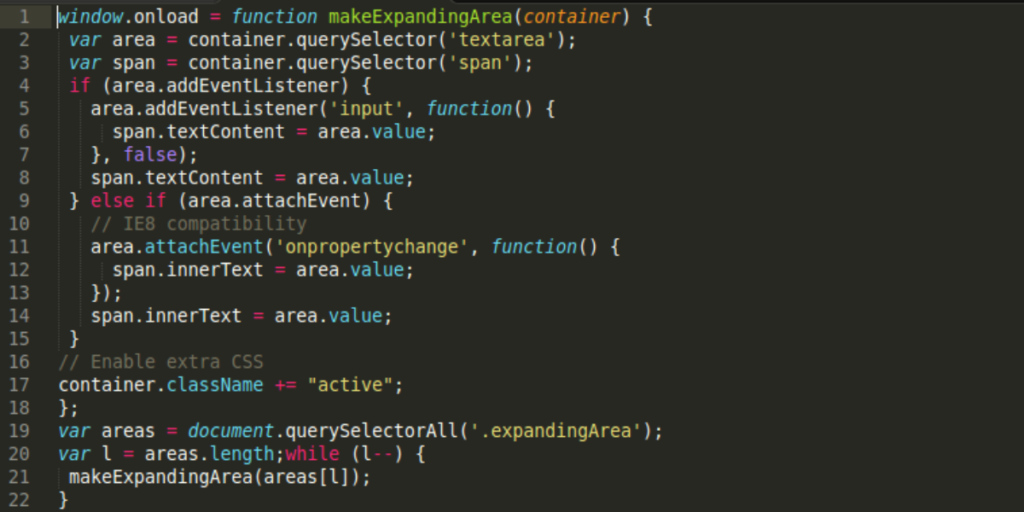Home > Top 10 Must-Know Programming Languages in 2025
In 2025, the world of programming continues to move at full speed. To stay ahead, it’s crucial to know which languages to focus on. Python, JavaScript, Rust… which ones will be truly essential this year? In this article, we review the 10 programming languages you need to master to boost your career. Web development, mobile, cloud, artificial intelligence: each field has its must-know tools. Whether you’re just starting out or already an experienced developer, here are the trends you need to know to stay up to date.

Python remains a pillar of development thanks to its simplicity, versatility, and widespread adoption across various fields. Its applications range from web development to artificial intelligence, including data science. Its clear and intuitive syntax makes it accessible to beginners while offering enough power for complex projects.
Python plays a key role in artificial intelligence and data science, powering tools and libraries like TensorFlow and Scikit Learn. With the rise of machine learning, Python continues to grow in these areas, providing robust solutions for data analysis and automation.
In 2025, Python keeps evolving with the development of automation tools and its growing use in cloud computing. Its ability to adapt and remain relevant in a changing tech landscape makes it a must-have for developers of all levels.

JavaScript is undeniably the most widely used programming language for web development, and this won’t change in 2025. Its ability to add interactivity to websites and create dynamic web pages is unmatched. This versatile language is essential for front-end development, thanks to popular frameworks like Angular and React.
With 95% of websites worldwide using JavaScript, it’s clear that this language plays a central role in building modern web applications. Developers appreciate JavaScript for its flexibility and its vast ecosystem, making it an essential tool for anyone working in web development.
JavaScript also offers a deployment advantage, enabling the creation of applications for multiple platforms, including mobile. JavaScript’s dominance in web development and its adoption by developers of all kinds make it a must-know choice for anyone aiming to excel in this field.

Java is a key programming language for enterprise application development, thanks to its robustness and security. It excels in building cloud solutions and complex systems, perfectly meeting diverse business needs. Java is also compatible with multiple operating systems, further enhancing its versatility.
Businesses prefer Java for large-scale applications because it ensures exceptional performance and reliability. In addition, Java remains a popular choice for Android app development, highlighting its scope and utility across various development areas.
Java’s well-established ecosystem, particularly suited to cloud computing, makes it indispensable in the business world. Its ongoing adoption by major companies and startups shows that Java remains a dominant force in software development.
Rust is emerging as a top choice for critical systems programming, thanks to its unique combination of security and performance. Its design prevents common memory issues, ensuring safe and reliable execution. Rust is especially valued in areas demanding high performance, such as embedded systems and video games.
Security is at the heart of Rust, with mechanisms that prevent memory leaks and buffer overflows. This makes it an ideal choice for applications requiring maximum reliability.
In 2025, Rust adoption continues to grow, particularly in cloud computing and web development projects. Companies are increasingly seeking developers proficient in Rust because of its robustness and efficiency.
Rust’s popularity for its performance and security makes it a language that plays a crucial role in modern development.

Go, or Golang, has quickly established itself in the field of cloud computing, thanks to its efficiency and simplicity. Around 75% of Go developers work with cloud services, illustrating its massive adoption in this sector. Go is particularly valued for its performance, notably through goroutines that efficiently handle parallelism.
Technologies like Docker and Kubernetes, which are essential in the cloud, greatly benefit from the use of Go. Nearly 48% of Go developers use AWS for their projects, highlighting the language’s effectiveness in cloud environments.
Go’s efficiency, reliability, and simplicity ensure its strong position in cloud development through 2025. For anyone working in cloud computing, mastering Go is a major asset.

TypeScript is becoming the language of choice for full-stack development, thanks to its static typing that helps identify errors during compilation. This significantly reduces bugs in production, improving application robustness. TypeScript also makes code refactoring easier, allowing changes to be made with confidence.
Adopted in many large-scale projects, TypeScript enhances the reliability and maintainability of code. Between 2017 and 2024, TypeScript adoption rose from 12% to 35%, demonstrating its growing importance. Modern editors like Visual Studio Code offer advanced features for TypeScript, making development even more efficient.
TypeScript strengthens collaboration between team members by providing clear documentation of types and interfaces. It allows JavaScript developers to gradually adopt advanced features without needing a complete code rewrite. In 2025, TypeScript is clearly a must-know language for full-stack development.

Kotlin has established itself as the benchmark for Android development since Google officially endorsed it in 2017. More than 90% of Android developers now prefer Kotlin as their primary programming language. Its concise syntax and modern features, such as null safety and coroutines, make it highly appreciated.
Kotlin’s conciseness reduces boilerplate code, promoting clearer and more maintainable programming. Major companies like Netflix and Uber have adopted Kotlin to build high-performance Android applications, demonstrating its reliability and efficiency.
Continuous innovations, such as Kotlin Symbol Processing (KSP), reinforce Kotlin’s relevance and ongoing advancement. Its compatibility with Java and growing demand make it a top choice for Android development in 2025.

Swift is the official programming language for Apple application development, designed to be the optimal choice for developers on its platforms. Since its introduction as the successor to Objective-C, Swift has modernized iOS development. Its superior speed, security, and clear syntax make it highly appreciated.
Swift is specifically designed for development on Apple and Linux platforms. By offering enhanced security and reducing the possibility of errors, Swift improves app maintenance with its unified file structure. It also uses an automatic memory management system, boosting application performance.
The outlook for Swift in 2025 and beyond is that it will likely remain a cornerstone of mobile development within the Apple ecosystem. Its gentler learning curve for new developers also makes it a recommended choice for beginners.

SQL remains essential for managing relational databases, despite the rise of NoSQL solutions. It is indispensable for databases, content management systems, and data analysis. Every backend or ETL developer should master SQL to ensure efficient data management and processing.
SQL continues to play a crucial role in modern development, meeting the data management and analysis needs of businesses. Its ability to structure and query data efficiently makes it a must-have tool for developers.

PHP, despite competition from modern languages like Node.js, Python, and Ruby, remains important, primarily for creating dynamic websites and content management systems. Companies like Facebook and Wikipedia continue to use PHP, demonstrating its ongoing relevance.
In 2025, PHP is mainly used for building dynamic websites and content management systems. Its demand remains strong due to its use in WordPress, especially for small businesses. PHP’s reliability and simplicity make it a viable choice for many developers.
Despite the competition, PHP continues to play a crucial role in web development, offering robust and proven solutions for various web applications.
| Language | What is it used for? | Key features | Ease of learning | Demand in 2025 |
|---|---|---|---|---|
| Python | Web development, data science, AI, automation, scripting | Simple syntax, huge community, highly versatile | Very easy | Very high |
| JavaScript | Creating interactive websites, web and mobile applications | Language of the web, lightweight, dynamic, huge ecosystem | Easy | Very high |
| Java | Enterprise applications, backend servers, Android | Very robust, object-oriented, reliable for heavy systems | Moderately easy | High |
| Rust | Secure system development, critical performance, WebAssembly | Ultra-secure (memory), fast, demanding but modern | Difficult | High and growing |
| Go (Golang) | Cloud development, server tools, high-performance backend | Easy parallelism, ultra-fast for cloud, minimalist | Easy | High |
| TypeScript | Robust full-stack web development (backend + frontend) | Strong JavaScript extension, static typing, better maintenance | Easy (if JS mastered) | High |
| Kotlin | Modern Android mobile apps, server backend | Java-compatible, modern syntax, optimized for Android | Easy | High |
| Swift | Fast and secure iOS/macOS mobile apps | Ultra-fast, secure, Apple-dedicated, modern | Easy | High |
| SQL | Database management, querying, and manipulation | Essential for structuring and querying databases | Very easy | Essential |
| PHP | Web development (dynamic sites, CMS like WordPress) | Easy to learn, massively used for the web, CMS performance | Very easy | Moderate but stable |
To recap, each programming language mentioned has its own strengths and areas of application. Python excels in artificial intelligence and data science, while JavaScript dominates web development. Java remains a solid choice for enterprise applications, and Rust is emerging as a champion of security and performance. Go, TypeScript, Kotlin, Swift, SQL, and PHP continue to play crucial roles in their respective fields.
These programming languages, each in their own way, are pillars of development in 2025. Whether you are an experienced developer or a beginner looking to choose the best language for your projects, these languages offer endless opportunities for innovation and success.
What is the programming language of the future?
Java is considered a sustainable and relevant programming language that will continue to be favored for application development in the coming years. Its massive adoption over more than 20 years attests to its robustness and longevity.
What are the 10 must-know programming languages in 2025?
In 2025, the must-know programming languages include Python, JavaScript, Rust, Java, Go, Kotlin, C, and C++. Each of these languages stands out for its specific features tailored to the current needs of software development.
Why does Python remain a pillar of development in 2025?
Python remains a development pillar in 2025 due to its simplicity and versatility, promoting its use across various fields such as artificial intelligence and data science. This massive adoption ensures its central position in the tech ecosystem.
Is JavaScript still relevant for web development?
Yes, JavaScript remains essential for web development, being used by 95% of websites to provide interactivity and dynamism.
Why is Java preferred for enterprise applications?
Java is preferred for enterprise applications due to its robustness, security, and compatibility with various operating systems, making it an ideal choice for large-scale solutions.

ITTA is the leader in IT training and project management solutions and services in French-speaking Switzerland.
Our latest posts
Subscribe to the newsletter
Consult our confirmed trainings and sessions

Nous utilisons des cookies afin de vous garantir une expérience de navigation fluide, agréable et entièrement sécurisée sur notre site. Ces cookies nous permettent d’analyser et d’améliorer nos services en continu, afin de mieux répondre à vos attentes.
Monday to Friday
8:30 AM to 6:00 PM
Tel. 058 307 73 00
ITTA
Route des jeunes 35
1227 Carouge, Suisse
Monday to Friday, from 8:30 am to 06:00 pm.